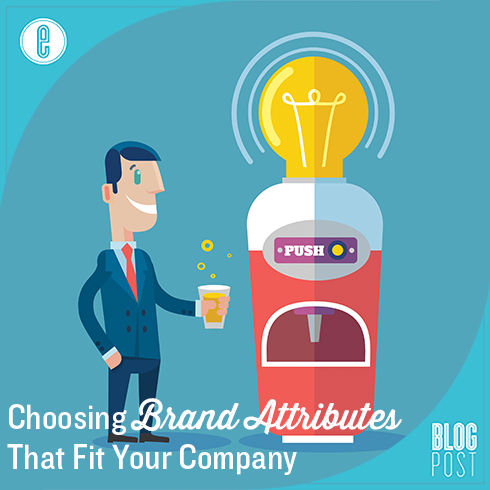Defining your business– knowing who it is and what it stands for– is an essential first step in creating an effective marketing strategy. You can’t market a business or product that you don’t understand, just as you can’t develop a steady relationship with someone when you’re not comfortable with who you are first. In fact, defining your business in terms of its brand attributes is very similar to defining a person. Think of it as creating a personal profile– a kind of cross between a dating site and a personal resume.
While choosing which characteristics make the most sense for your company, consider the following four overarching types of brand attributes:
What You Stand For– Moral Brand Attributes
Believe it or not, all successful businesses have moral attributes. They may not be attributes that you personally agree with, but they do exist. It’s important to define these brand attributes, or corporate values, first because your business’ moral standing will set your company apart from other businesses in your sector, and will define everything that you say and do in the future.
Your brand’s moral attributes could be as simple as committing to putting the customer first, being an active and positive part of the local community, or making as small an impact on the environment as possible. A company devoted to improving their community, for example, may then choose to source all of their product components and services from local independent traders. If environmental consciousness is a defined brand attribute of your business, it is an easy choice to advertise only through digital mediums to reduce paper consumption.
How You Connect– Emotional Brand Attributes
In any relationship, the emotional outlook of one person often affects the attitude of the other. The relationship that your brand has with your customers is similar– the personality you project impacts how a customer feels when they are shopping for your goods or services. Do you want them to feel happy while they shop? Or perhaps anxious? These characteristics also help your customers recognize your business as distinct from competitors.
If you’re a security company, for example, you want to present a feeling of strength, compassion, and urgency. By doing this, you’re trying to make the customer feel vulnerable enough to want your services (without scaring them out of their minds.) After a sale, you want your customer to feel safe, secure and important. If these emotions start to fade with poor customer service, there’s a chance that they will go somewhere else to find that feeling.
What You Do Better– Intellectual Brand Attributes
Think of selling your product as a job interview– the key is to let your audience know what you’re capable of and why you’re better than the competition. It’s important to note, however, that different consumers are looking for different qualifications. While shopping for a phone, some customers value battery life while others care most about camera quality or storage space. If you know what your target market is looking for, it’s easier to align your company’s attributes with those needs.
Beware: If your product doesn’t fill a void for your customers, you could be attempting to reach the wrong customer segment or may need to re-evaluate what your business is offering.
How You’re Seen– Physical Brand Attributes
Whatever you may have heard, looks do matter. This doesn’t mean that one look works for everyone– consumers’ taste in brands can be as varied as people themselves. You want your look to reflect the type of customers you’d like, as well as the way you want those customers to feel (don’t forget about those emotional brand attributes.) Most importantly, what you put on the outside should accurately reflect your other values. Your customers are smarter than you’d think– if the outward presence of your company doesn’t match your products or moral attributes, they’ll catch on and move on– to your competitor.
Choosing your company’s brand attributes is hard– and very important. They set the tone for both your employees and your consumers, and dictate every decision you make as well as the future direction of your company. Because of this, carefully consider each attribute and how genuinely it embodies the personality you wish to create. There are many ways to approach brand attribute brainstorming, but in the end, a smartly crafted brand that knows themselves as well as they know their target market is well poised for success.
-FINAL(01-00)-White&Blue-01.svg)





